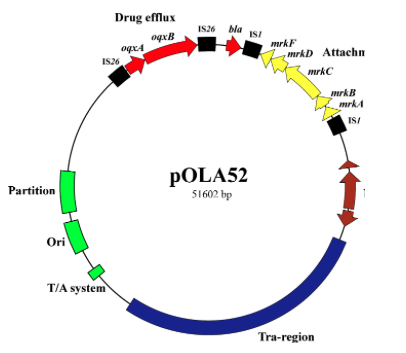
Project type: This project is available to 1-2 Bachelor or Master students and is part of a Grant from DFF-FTP
Salmonellosis has been a big problem world‐wide and still is. The phage-type PT1 of S. enteritidis made up 17.8 % of the total cases caused by this strain, being the second most occurring type.
The methods of phage-typing to subdivide the serotypes into phage‐types have been widely used for many years as a tool to trace an outbreak or a simple infection back to the indigenous source. Studies have now shown that the introduction of an IncX plasmid can change/convert the phage‐type of S. enteritidis by protecting the bacterium from infection of some of the bacteriophages. This might have influence on the phage-typing in the future, since a serotype like S. enteritidis with a self-introduced plasmid can change phage-type and by that it can be hard to map the spread of the original type causing the disease.
Also, this phenomenon is extremely interesting from a purely scientific point of view. The potential of plasmids to encode resistance to bacteriophage attack can prove to be a very advantageous selective trait.
The aim of this study is to find the genetic mechanism responsible for the phage‐type conversion introduced by the IncX plasmids and to see if other plasmids have the same ability.
Possible tasks:
-Isolation of phages
-Phage-host interaction study
-DNA sequencing
Supervisors: Lars H. Hansen (Professor), Witold Kot (PostDoc)